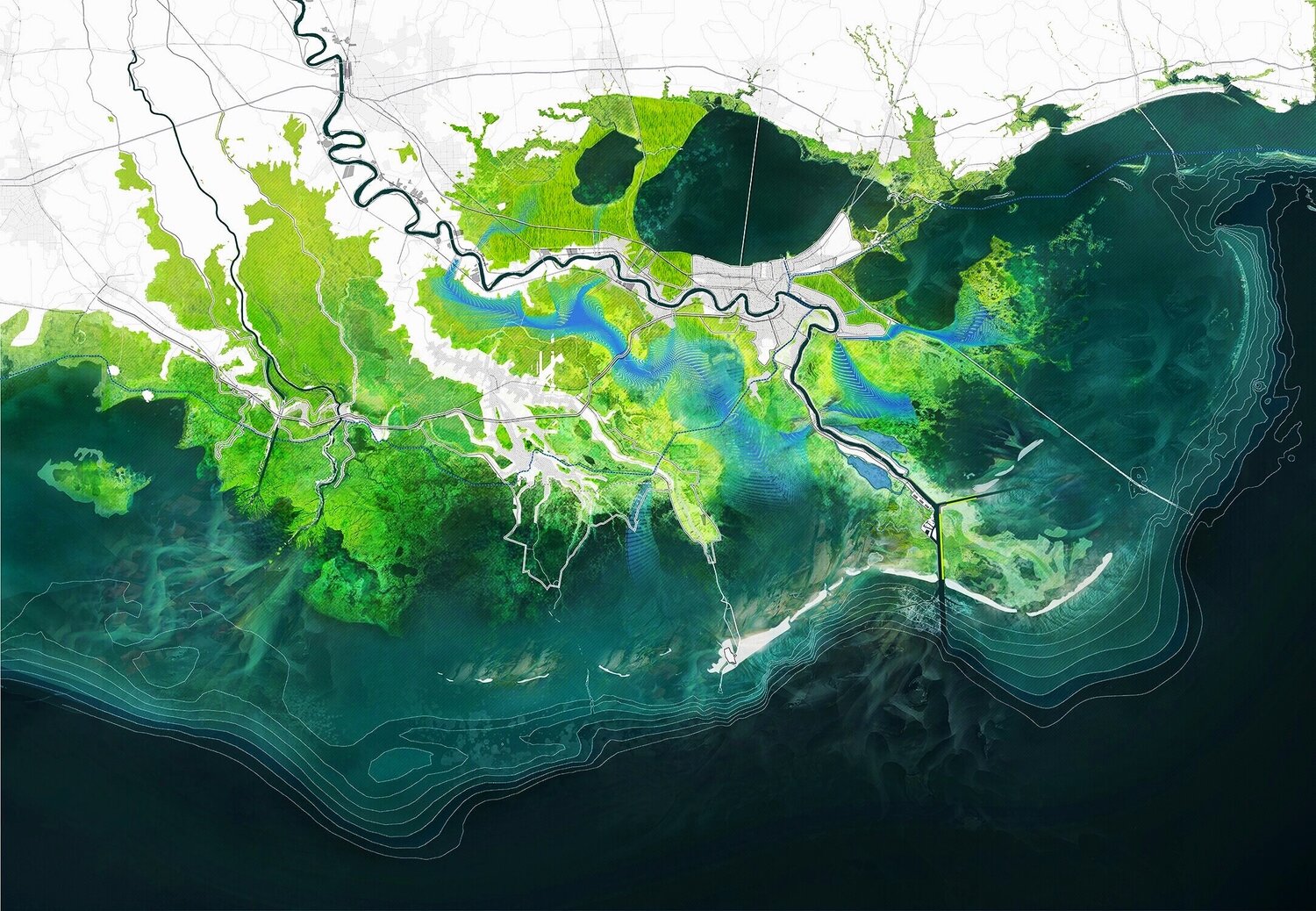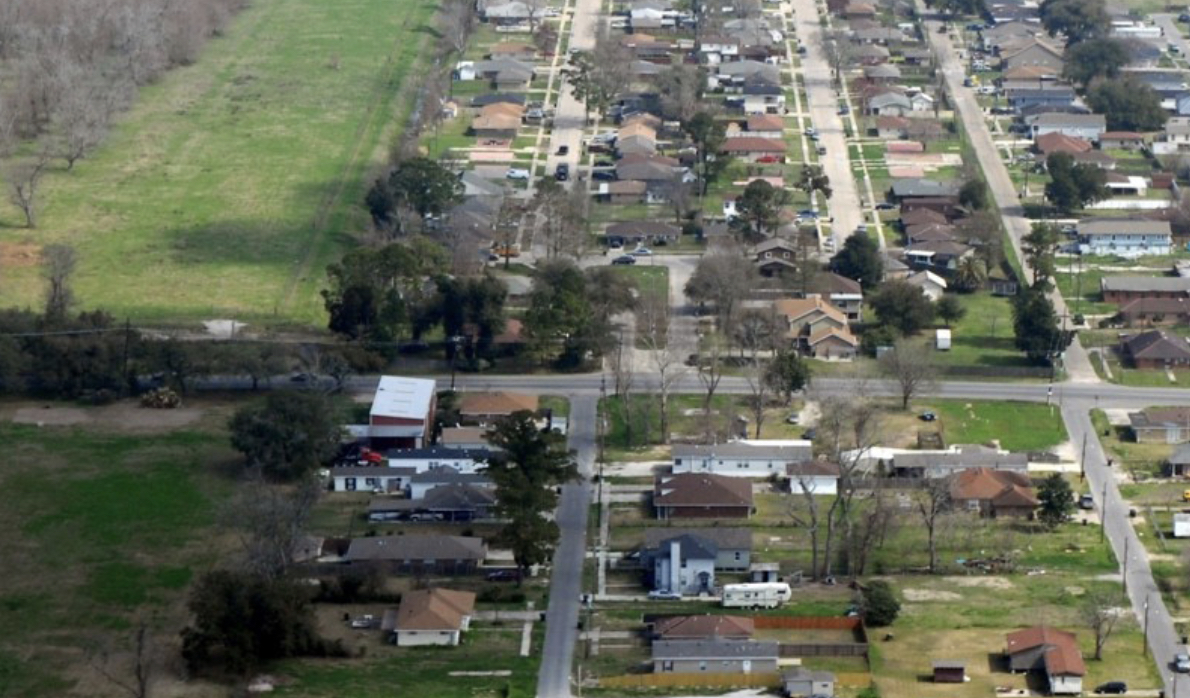About
The LSU Coastal Ecosystem Design Studio (CEDS) serves as a national and worldwide model for promoting resilience and adaptation in coastal and deltaic regions by designing processes, systems, models, tools, and solutions that reduce vulnerability to increased storm damage, coastal hazards, habitat degradation, and global environmental change. CEDS innovative site-specific designs are supported by best practices in planning and design and frequently deploy advanced hydrodynamic and hydrologic (H&H) models. These H&H models help assess the dynamic, interrelated processes of natural and human systems and provide the ability to analyze design performance to natural and nature-based features (NNBF) at the coastal land-margin.
CEDS is located off LSU’s main campus in Baton Rouge, Louisiana, at the Water Campus—a group of buildings that strategically house water-focused organizations, such as the LSU Center for River Studies (which includes a scale model of the Mississippi River), the Water Institute of the Gulf, the State of Louisiana Coastal Protection and Restoration Authority (CPRA), The Estuary (event space), and commercial office space. CEDS occupies the first floor of a unique structure called the “Dock Building” which was constructed atop the old municipal dock on the Mississippi River.
Our History
The LSU Coastal Ecosystem Design Studio (CEDS) was formed with the merger of the LSU Coastal Sustainability Studio (CSS) and the LSU Center for Coastal Resiliency (CCR). Though both organizations conducted multidisciplinary work focused on coastal and deltaic problem-solving, each leveraged its own foundational knowledge base, resulting in very different applied research products. CSS was fundamentally design- and planning-focused, emphasizing the fields of architecture, landscape architecture, planning, graphic design, and policy development in support of building community resilience and ecosystem balance; while CCR focused on complex hydrological modeling, generally accomplished though decades of experience in high-performance computing and subject matter expertise in civil and environmental engineering. CCR focused on the advancement and application of computational hydrodynamic and hydrologic (H&H) models to include overland flow, river discharge, tides, wind-waves, and hurricane storm surge. CCR also developed advanced systems-based models for the assessment of effects of climate change and associated sea level rise, oil transport and fate, and the Gulf dead zone. The new, broader approach resulting from the recent LSU CEDS formation has resulted in more comprehensive analyses, research, designs, and tools development. By convening and uniting a wider variety of subject matter experts to address current and future coastal, deltaic, and climate change challenges, CEDS is contributing to research and resolutions as broad and complex as hydrological modeling, food sustenance / cultural preservation, urban heat mapping along the Mississippi River, and interdisciplinary pedagogy—just to name a few.
“Our mission has always been to bring different disciplines together to work with local communities and translate the science into what it means for people on the ground.”
Traci Birch, Associate Director of CEDS
More Information
Our Work
Click below to learn more about LSU CEDS work.


